- Home
- Harry Harrison
The Stainless Steel Rat Returns Page 18
The Stainless Steel Rat Returns Read online
Page 18
He looked around slowly, orienting himself, taking his time. I ignored the rushing green hordes that were closing in and did not hurry him. He carefully pointed.
“There. Go towards that group of trees with the low hill beyond.”
The engines roared and the deck pressed up against our feet.
The forest moved by below us and, very soon, the loop in the river came into sight. The image grew as we approached.
“There,” I said, “land in the center of the field—well away from the river. The boys have herded the porcuswine together, over by the water.”
It was a smooth landing, with only the slightest jar as we settled down. I turned and looked at Bram—who was clutching hard to the console, staring fixedly at the scene below.
“I could not believe—a thing such as this . . .” He choked out the words, overcome by the ship, the flight. Suddenly catapulted from the iron age into the advanced age of science. Angelina was looking at him as well, understanding what he was feeling. She put her arm around him.
“This is your future, Bram. You are now part of it—you will see all of its wonders.” He smiled, and nodded.
“There is much to be learned,” he said quietly, then left the bridge.
The lower airlock was already open and on the viewscreen we saw the cheering passengers streaming out onto the field, heading towards the milling herd. The porcuswine heard them, saw them and stormed past the boys for a grunting, shouting, scratching happy reunion.
“Shall we join them?” Angelina asked as she took my hand.
“We shall indeed. But I hope that you will first join me in a toast to victory. Of a kind.”
“Of course. And we did get those poor engineers out of loathsome captivity, Hans as well. That’s something to be proud of.”
After our days of roughing it the bar was a dream of luxury; soft chairs, softer music, rehabilitating drinks. We clinked glasses.
“I’ve missed the joys of civilization during our Neolithic adventures,” I said, and looked up as the captain came in.
“Happy to join you,” he said, taking a glass. “I’m off duty. Thought I would find you here. Thanks.” He drank deep and dropped into a chair. “There is much that we must talk about.”
“Indeed. But can’t it wait until later?”
“It will have to. I hate to disturb this moment of leisure, but many outside are clamoring for your attention. Stramm is keeping them at bay—since he is concerned about who he lets into the ship.”
“Understandable.” I creaked when I stood up.
“I’ll join you later,” Angelina said. “I won’t feel clean until I have scrubbed off this awful green color.”
“You want to go out there?” Stramm said accusingly, when I came up. He was looking at the screen above the lock controls that showed the scene directly outside. Bram was there, talking with two of his trackers. A scowling Elmo was sitting on the grass, chewing on a straw and looking most aggrieved.
“If it is permitted, I do,” I answered.
“No one gets back inside until I say so. The maintenance is running weeks behind so I can’t babysit strangers.”
“Agreed. But we may have to get out of here in a hurry. The grotty Greenies will be here in force as soon as they get organized. They will not be happy.”
“Before we take off again I need reaction mass and drinking water. I will want some muscle to run the hoses to that river.”
“I’ll send some to you. Anything else?”
“Not at the moment . . .”
Ever so reluctantly he let me out—and closed the inner lock as soon as I was on the ramp.
“Cousin Jim, we got a shore big heap of things to settle—”
“Later,” I said. “Right now we need you and half a dozen more volunteers to help Stramm run out some water hose. Soonest.” I brushed past him.
I had seen the horses as they appeared on the far side of the field. A goodly number of them pulling heavily loaded travois. Then more and more people appeared.
“We must leave this place at once,” Bram said. “It is very hard to say good-bye to our new friends from the stars. Yet we know that the green trackers will be leading their people here in great numbers, after all the trouble we have caused. We must go away, far and fast.”
“But we were the ones who attacked them, not you—and freed their prisoners.”
“They see no difference. Any pale skin will now be pursued, killed.”
“That’s not fair!” I said.
“It is our existence, we know no other. But now we have hope, from our new friends from the stars. Leave this unhappy world. I hope that you will remember these forests and those who live here.”
“Of course I will! But can’t you come with us?”
There was a deep sadness in the shake of his head.
“Would that I could! How I long to see the wonders of the many new worlds out there. But my place is here, on this troubled planet. With my people. But do not forget us—our new friends from the stars.”
“We will do more than just remember. I vow this. I will return—bringing with me those who will stop this racial war of hatred. I cannot say when this will happen, but I will be back.”
He nodded—smiling at me through an immense sadness. Turned and went over to join the others. They were already moving out of this field by the river and disappearing back into the forest. Moving on in their endless flight from a ruthless and merciless enemy.
“Coming through!” a voice shouted. I stepped aside as the troop of farmers rushed by with coils of hose on their shoulders. A moment later I heard plaintive squeals from the distance—plus the occasional grunt of protest. The boars led the way with the pack trotting steadily behind. The farmers were shouting and laughing as they kept the porcuswine moving. Up the ramp and into the ship.
Behind them the field was empty. The sky darkened as storm clouds appeared, a sudden shower beat down on the field. I walked back into the shelter of the ship, my thoughts as black as the sky. The speaker above me crackled.
“Boss to bridge soonest.”
I went. Glad to escape my growing depression. What had we accomplished on our perilous visit to this planet? Got into trouble—and then out of it. Disturbed a wasp’s nest of hatred and anger. In an effort to bring some peace we had brought more conflict instead. It was some small satisfaction that we had released four men from captivity. But the rest of the planet was the original stewing, hate-filled world that it had been before we arrived.
Angry now, I grabbed myself by the metaphorical neck and gave a good shake.
“No Jim! You are a power for good in the universe today. Not now, but one day you will bring both aide and succor to this troubled world.”
“Talking to ourselves, are we?” Angelina said. “Sign of advance old age.”
“No. I was just swearing an oath to return to this awful planet with its suffering people. We must—and we will—change that.”
She smiled and blew me a kiss. “From anyone else that would be feckless bragging. But from Jim diGriz it is a powerful certainty. I’m off to the party.”
“What party?”
“The one we are throwing for those poor men we rescued. Figured we all needed a bit of cheering up.”
We went our various ways; I to the bridge. I wondered what was the next crisis awaiting me there. It was there all right—and a big one indeed.
“We have enough gravitons for one medium-sized Bloat. Or two short ones,” the captain said with unrestrained gloom. “Either way it is a matter of chance were we end up. Pot luck.”
“Not too encouraging. Are there any other factors that we have to take into consideration?”
“Direction,” he said, turning to a star-filled screen and pointing at the brightest area, with the thickest array of suns. “The galactic center. I have been turning our course that way whenever possible. The more suns, the more possible worlds for us to contact.”
I was looking at the outside im
ages on the panoramic viewscreens as we talked. The rainsquall had swept by, leaving a rainbow arcing across the now blue sky. Our new friends and their horses long gone. Just a few men were in sight below, standing by the hose that reached out into the river.
“The farther the better,” I said.
“What?”
“When you gamble you have to play for keeps. Decide on a strategy, then do it. Make the biggest Bloat you can. Go for broke.”
I hope that I sounded more positive then I felt. Faint heart ne’r won fair lady. Or something like that.
“We’ll have to leave some gravitons in reserve. To approach any planets in the area.”
I did not like the casual use of any. On the screens the hose handlers were slowly walking back to the ship, the hose undoubtedly throbbing with water. The rainbow had faded away with the storm. Nothing else moved . . .
Or did it? Was that a flicker of motion on the far side of the field, where the trees came down to the riverbank? The scene enlarged as I spun the focus. Nothing. I was just seeing things. A mirage of stress and fatigue.
“I can’t set the final course until we get into orbit,” the captain muttered as he hammered away at his keyboard. “As soon as the water tanks are filled I want to take off.”
“Nothing better. We have all had enough of this perilous planet . . .”
“Stramm,” he said, keying on the intercom. “What’s your water status?”
“Passenger tanks full. Topping up rest of reaction mass.”
A flicker of motion caught my eye at the forest’s edge. There was something out there.
“Captain, if you look towards the trees . . .”
My voice died as, with a single motion, the woods erupted.
Men running, hundreds—no, thousands! Coming from all sides.
The captain banged hard on the alarms, which wailed piercingly inside the ship and out.
“This is an emergency. We will be taking off as soon as the port is closed. Emergency takeoff. You men outside to the ship!”
They were running for their lives now, as more and more green-skinned figures poured out onto the field—from all sides. The leading attackers hesitated, but were clubbed forward by the men behind them.
“Stramm! Pumps off—and cut that hose!”
The last man fell into the ship as the ramp was retracted. The sirens still wailed. The captain beat his fist against the console—staring at the red light that meant the airlock was still open.
“They’re inhuman fiends,” he shouted. “Beating their own people to approach the ship. Knowing they’ll be cinders if we fire the takeoff tubes. Hoping that will stop us.”
Beaters and beaten still surged towards us. Heading towards instant incineration.
The red light turned green.
“TAKEOFF!” the captain roared—pounding down on the switch.
An instant later a distant rumble grew and grew to a mighty roar. The deck trembled then punched up. Flame and smoke obscured the viewscreens. The alarm sirens died away.
As soon as we were in orbit the captain reran the screens in slow motion. Smoke and flame roared out, diminished and died down.
“Freeze that!” I said.
No grass could be seen in the field—it was covered by the running, pushing, falling figures of the attackers. The ship’s jets flamed down towards them. I leaned over and touched the screen.
“Congratulations on a well-timed takeoff, Captain.”
“The front of the attacking mob was just meters from the blast.”
“You saved their lives.”
THE TORTURED PLANET OF SALVATION dwindled behind us as the first Bloat began. After our strenuous adventures on that unhappy world, our voyage now on the spacegoing swinesty was like unto a holiday cruise. As the sore muscles and bruises faded into memories I found that the easy pace of existence suited me fine. I watched an ancient film or two, read some books from the multimillion-volume database and looked forward happily to an afternoon tipple in the bar.
The released prisoners blossomed under the maternal attention of Miz Julia and her mates. They applied themselves with great relish to the reconstituted and frozen food—a banquet after the slop their green captors had served up. I smiled on them benignly: at least some good had come out of our desperate visit. I renewed my oath at the next cocktail hour, raised my glass and swore to someday, somehow, bring peace to that sorely troubled world.
“I’ll drink to that,” Angelina said, and we clinked glasses. “And doom and destruction upon that villain Rifuti.”
In the rush of events I had completely forgotten the criminal captain. She had not. Nor would he escape. Justice would be done: in person if needs be.
The intercom had been turned low, and could just be heard behind the soft melody of the Mozart sonata.
“Boss to bridge.”
“Coming with me?”
“Later. This is bath day for Pinky. She does enjoy her scented scrub.”
“Rather you than me,” I said with some feeling. At the top of the list of things I preferred not to do was to shower the spines of Pinky porcuswine. A meeting on the bridge was a far more attractive proposition.
“Moment of decision for our next Bloat,” the captain said, pointing at the black viewscreen. “There is just that single star ahead.” I leaned close and saw the tiny glowing spot. “Do we Bloat again in that direction?”
“Nothing else around?” I asked hopefully.
“No. Nothing we can reach using the gravitons we have left. Even this will deplete most of our reserves.”
Decision time.
“Do we have a choice?”
“Not really.”
“Then let’s do it.”
He nodded grimly. And turned to the Bloater Drive.
I turned to the bar. A quick energizer was very much in order. Angelina was already there, putting a last gloss on Pinky’s spines with a polishing cloth. A plaintive grunt announced that porcuswine were always ready for a quick munchy. I put out a bowl of pirri pretzels so we could join her.
“Libation?” I asked.
“Why not.” She shared some munchies with Pinky while I poured.
I brooded over my drink and she quickly caught my mood.
“Worried?”
“Not really. Just concerned. We are on our final Bloat. About two days more and we’ll know just how unlucky we are . . .”
“Or lucky—there are two sides to every coin.”
“True. Maybe I’m just suffering from the Greenie blues. But—”
“Aren’t we all. No pleasure planet that.”
After this I tried to keep my worries to myself. All would be revealed soonest in any case. It was a relief when the captain’s voice on the intercom said:
“Bloat will end in two hours.”
Angelina went with me to the bridge. Soon after we arrived we were joined by Stramm. “We’ll know soon enough now.”
A master of the obvious, our engineer. It didn’t merit a response.
For good or bad, the shivering pop of the Bloater field collapsing was welcome.
As the glowing star appeared in the center of the screen, the radio crackled into life.
“Welcome to the star system of Alpha Adonis . . .”
“We’ve done it!” Stramm said.
“This is a starwatch robotic beacon.”
Gloom descended while the recording continued.
“There are three planets in this system, and an asteroid belt. There are no settlements on any of these planets . . .”
“Command order to beacon,” the captain said into his mike. “Does this beacon contain communication capability?”
“Planetary coordinates follow . . . skrrk . . . This beacon’s communications consist of radio only. Nearest full communication facilities are at star system one dash thirty . . .”
The captain clicked the connection off and turned to look at us.
“Now what?” he said with a great weariness.
His answer was only silence. Angelina was the one who finally broke the spell.
“Turn it on again. Let us hear about those three planets.”
Stripped of all excess robotic verbiage the answer was simple.
“One gas giant,” the captain said. “Has an impressive ring, but no moons. Two planets in the habitable zone. One has an atmosphere—a bit less than one G—and sounds hot but inhabitable. The other one has a livable atmosphere but . . .”
I added the clincher—“But it is a big and heavy world, with a gravity of almost three Gs. And oxygen tension almost a third less than normal.”
The silence was palpable, depression dark in the air. Where did we go from here? Only Stramm showed signs of life, tapping his jaw and muttering to himself. Then, without a word, he turned to the control board and began to punch in numbers. Equations raced down the screen. After more jaw prodding he entered more figures, nodded—and turned to face us.
“There is one possibility,” he said.
“To do what?” I asked.
“To escape this star system.”
“How?” the captain snapped.
“First, by landing on the heavy planet. The human body can work at that gravity, if only for a short time.”
“Doing what?” Angelina asked, speaking for us all.
“Unloading the graviton collector onto the planet’s surface. Once it began operating in a three-G environment it would take”—he turned back to his computations, then pointed to screen—“exactly three months to collect enough gravitons to make a long enough Bloat to, hopefully, another star system.”
There was a cogitating silence as each of us considered this uncomfortable solution.
“It can’t be done,” Angelina said firmly. “We couldn’t stay alive long under that gravity.”
“We wouldn’t have to,” was Stramm’s surprising answer. “We land, push out the graviton collector, then take off. The only problem, a minor one, is that we might have to load more reaction mass to take off from that gravity. Then we go into orbit . . .”
“Not possible,” was the captain’s firm answer. “Not enough food and water aboard to last us for three months in orbit. This ship was not designed for long periods in flight.”
It was time for me to add a note of hope to this thoroughly depressing conversation. “We don’t have to stay in orbit,” I said, and beamed a smile on all. “Why don’t we spend the time on the companion planet? Warm, habitable—but not inhabited as yet. We will be the founding fathers—and mother of course,” I added tipping my head in Angelina’s direction.

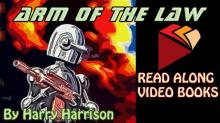 Arm of the Law
Arm of the Law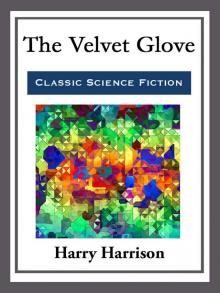 The Velvet Glove
The Velvet Glove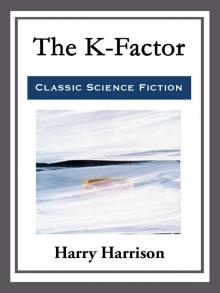 The K-Factor
The K-Factor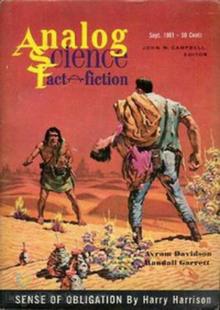 Sense of Obligation
Sense of Obligation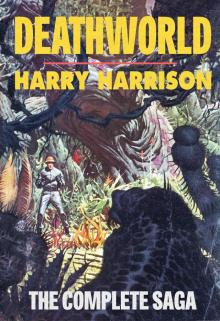 Deathworld: The Complete Saga
Deathworld: The Complete Saga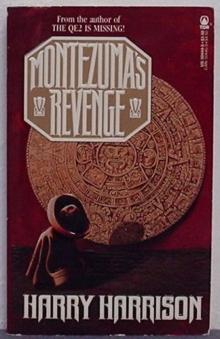 Montezuma's Revenge
Montezuma's Revenge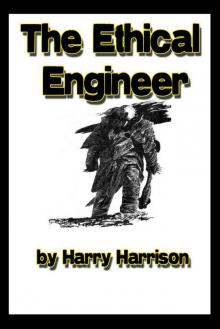 The Ethical Engineer
The Ethical Engineer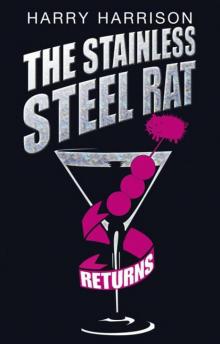 The Stainless Steel Rat Returns
The Stainless Steel Rat Returns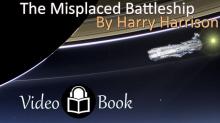 The Misplaced Battleship
The Misplaced Battleship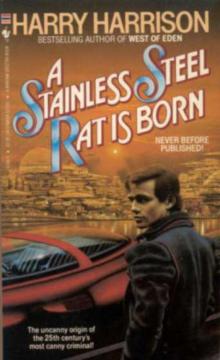 The Stainless Steel Rat is Born
The Stainless Steel Rat is Born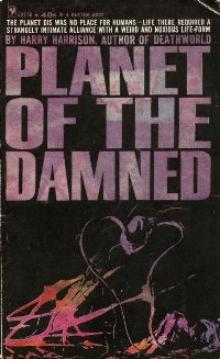 Planet of the Damned bb-1
Planet of the Damned bb-1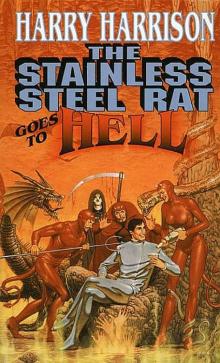 The Stainless Steel Rat Goes to Hell ssr-10
The Stainless Steel Rat Goes to Hell ssr-10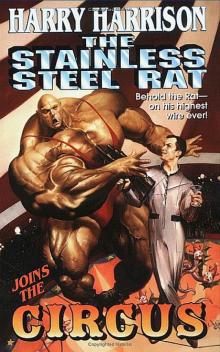 The Stainless Steel Rat Joins the Circus ssr-11
The Stainless Steel Rat Joins the Circus ssr-11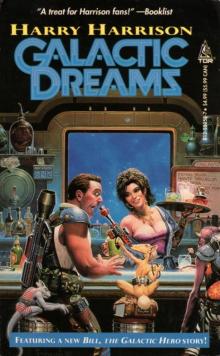 Galactic Dreams
Galactic Dreams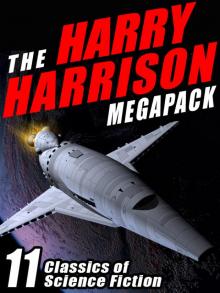 The Harry Harrison Megapack
The Harry Harrison Megapack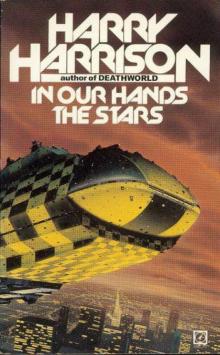 In Our Hands the Stars
In Our Hands the Stars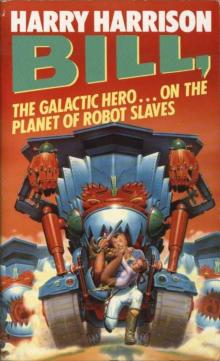 On the Planet of Robot Slaves
On the Planet of Robot Slaves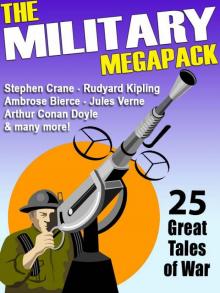 The Military Megapack
The Military Megapack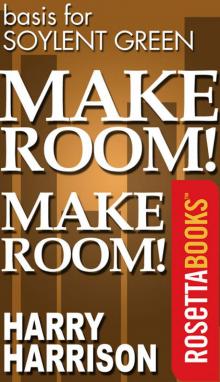 Make Room! Make Room!
Make Room! Make Room! Wheelworld
Wheelworld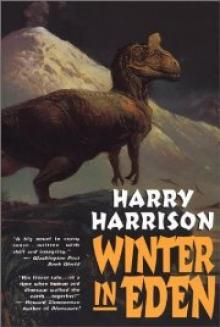 Winter in Eden e-2
Winter in Eden e-2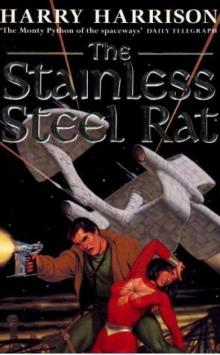 The Stainless Steel Rat
The Stainless Steel Rat The Stainless Steel Rat Goes to Hell
The Stainless Steel Rat Goes to Hell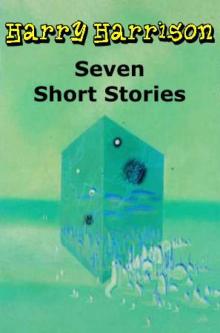 Harry Harrison Short Stoies
Harry Harrison Short Stoies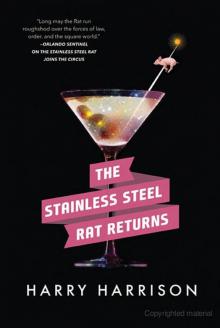 Stainless Steel Rat 11: The Stainless Steel Rat Returns
Stainless Steel Rat 11: The Stainless Steel Rat Returns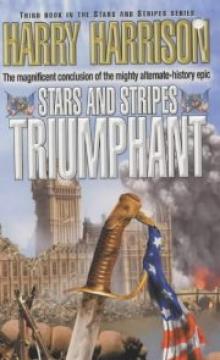 Stars and Stripes Triumphant sas-3
Stars and Stripes Triumphant sas-3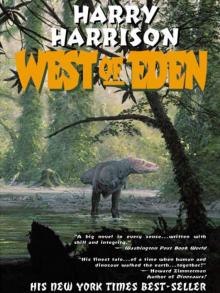 West of Eden
West of Eden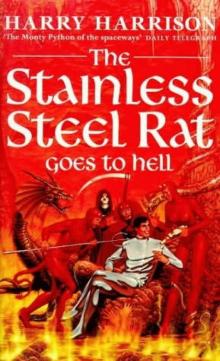 The Stainless Steel Rat Go's To Hell
The Stainless Steel Rat Go's To Hell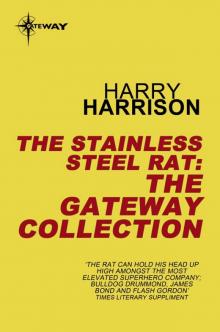 The Stainless Steel Rat eBook Collection
The Stainless Steel Rat eBook Collection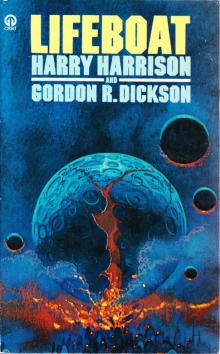 Lifeboat
Lifeboat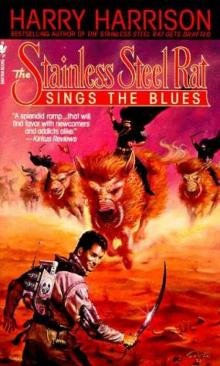 The Stainless Steel Rat Sings the Blues
The Stainless Steel Rat Sings the Blues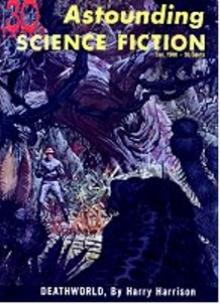 Deathworld tds-1
Deathworld tds-1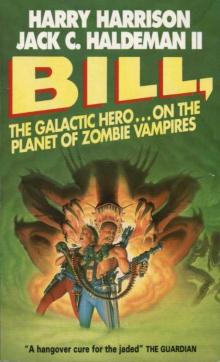 On the Planet of Zombie Vampires
On the Planet of Zombie Vampires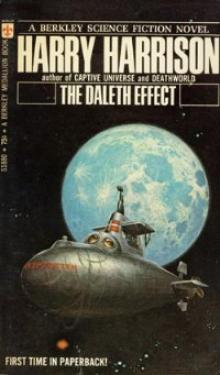 The Daleth Effect
The Daleth Effect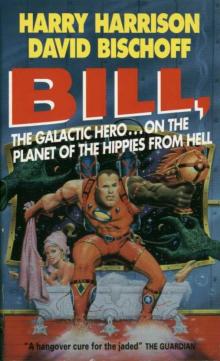 On The Planet Of The Hippies From Hell
On The Planet Of The Hippies From Hell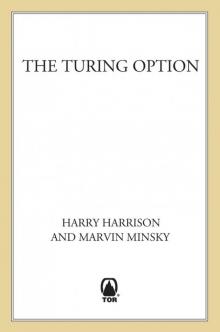 The Turing Option
The Turing Option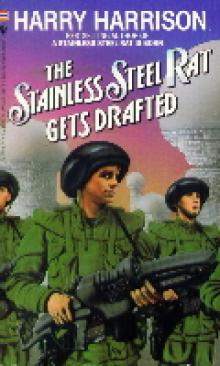 The Stainless Steel Rat Gets Drafted
The Stainless Steel Rat Gets Drafted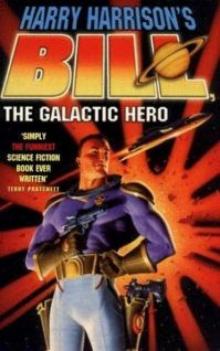 Bill, the Galactic Hero btgh-1
Bill, the Galactic Hero btgh-1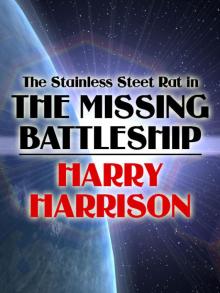 The Stainless Steel Rat in The Missing Battleship
The Stainless Steel Rat in The Missing Battleship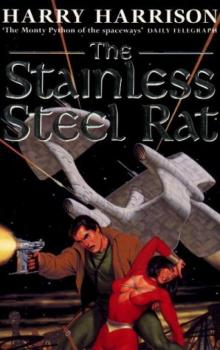 The Stainless Steel Rat ssr-1
The Stainless Steel Rat ssr-1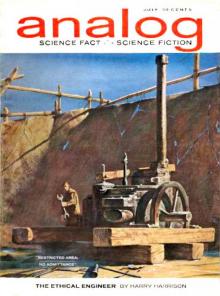 The Ethical Engineer (the deathworld series)
The Ethical Engineer (the deathworld series)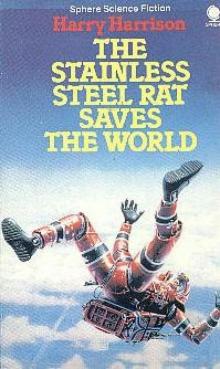 The Stainless Steel Rat Saves the World ssr-3
The Stainless Steel Rat Saves the World ssr-3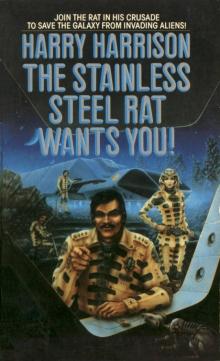 The Stainless Steel Rat Wants You
The Stainless Steel Rat Wants You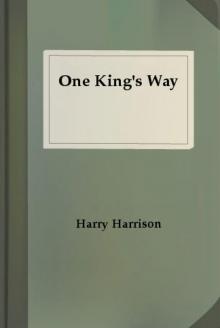 One King's Way thatc-2
One King's Way thatc-2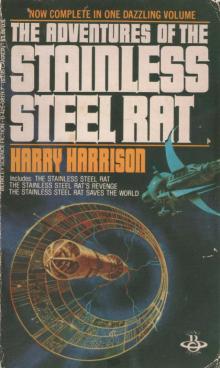 The Stainless Steel Rat Saves The World
The Stainless Steel Rat Saves The World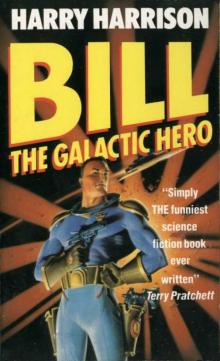 Bill, the Galactic Hero
Bill, the Galactic Hero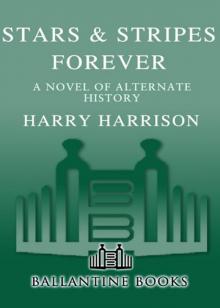 Stars & Stripes Forever
Stars & Stripes Forever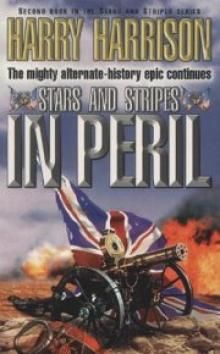 Stars and Stripes In Peril sas-2
Stars and Stripes In Peril sas-2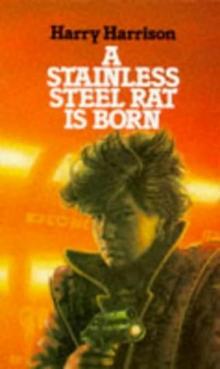 A Stainless Steel Rat Is Born ssr-6
A Stainless Steel Rat Is Born ssr-6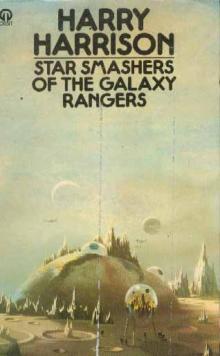 Star Smashers of the Galaxy Rangers
Star Smashers of the Galaxy Rangers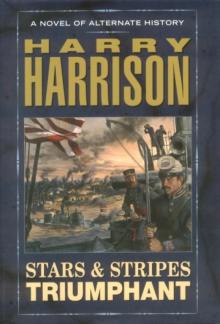 Stars & Stripes Triumphant
Stars & Stripes Triumphant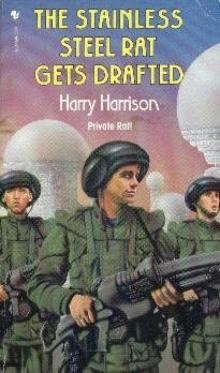 The Stainless Steel Rat Gets Drafted ssr-7
The Stainless Steel Rat Gets Drafted ssr-7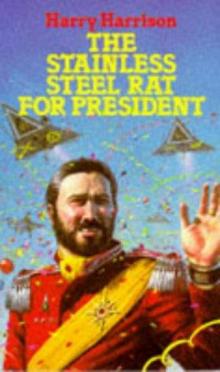 The Stainless Steel Rat for President ssr-5
The Stainless Steel Rat for President ssr-5 The Hammer & the Cross
The Hammer & the Cross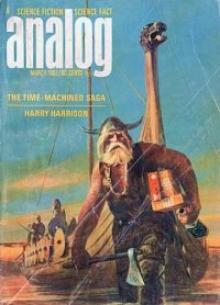 The Technicolor Time Machine
The Technicolor Time Machine The Hammer and The Cross thatc-1
The Hammer and The Cross thatc-1 King and Emperor thatc-3
King and Emperor thatc-3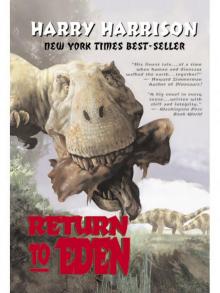 Return to Eden
Return to Eden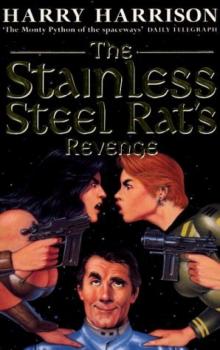 The Stainless Steel Rat’s Revenge ssr-2
The Stainless Steel Rat’s Revenge ssr-2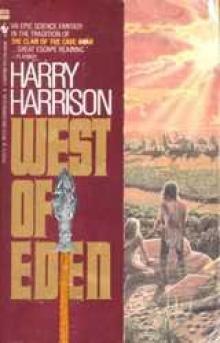 West of Eden e-1
West of Eden e-1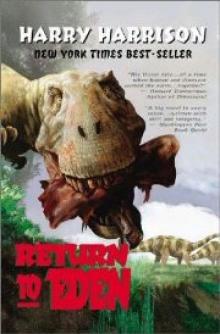 Return to Eden e-3
Return to Eden e-3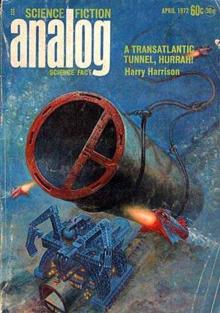 A Transatlantic Tunnel, Hurrah!
A Transatlantic Tunnel, Hurrah!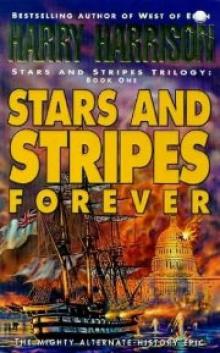 Stars and Stripes Forever sas-1
Stars and Stripes Forever sas-1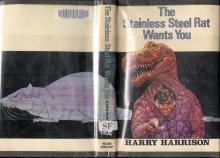 The Stainless Steel Rat Wants You ssr-4
The Stainless Steel Rat Wants You ssr-4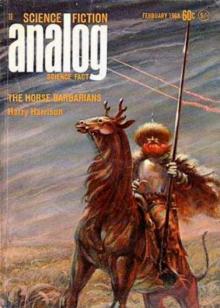 The Horse Barbarians tds-3
The Horse Barbarians tds-3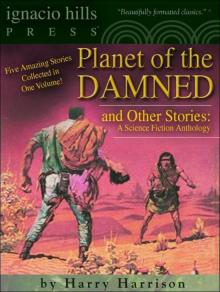 Planet of the Damned and Other Stories: A Science Fiction Anthology (Five Books in One Volume!)
Planet of the Damned and Other Stories: A Science Fiction Anthology (Five Books in One Volume!)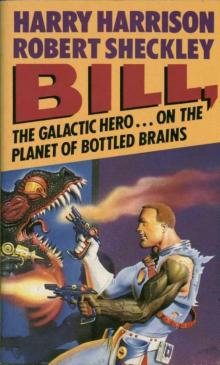 On the Planet of Bottled Brains
On the Planet of Bottled Brains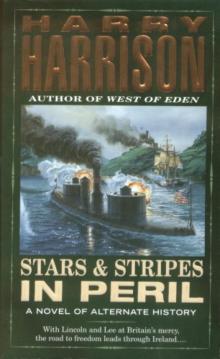 Stars And Stripes In Peril
Stars And Stripes In Peril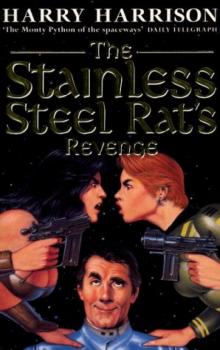 The Stainless Steel Rat's Revenge
The Stainless Steel Rat's Revenge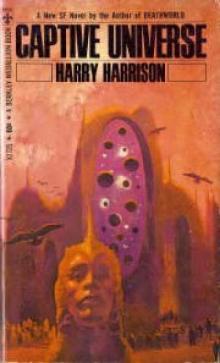 Captive Universe
Captive Universe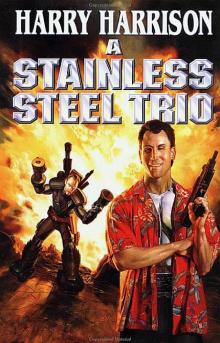 The Stainless Steell Rat Sings the Blues ssr-8
The Stainless Steell Rat Sings the Blues ssr-8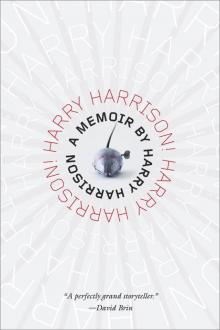 Harry Harrison! Harry Harrison!
Harry Harrison! Harry Harrison!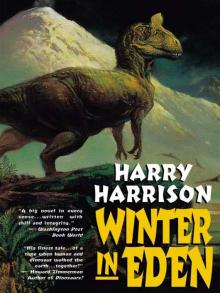 Winter in Eden
Winter in Eden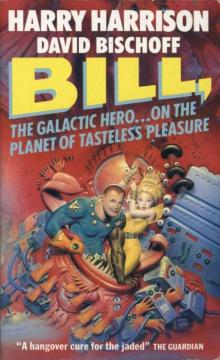 On the Planet of Tasteless Pleasures
On the Planet of Tasteless Pleasures